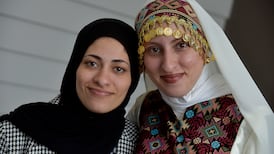The family of a woman who died days after a video of her walking naked in a Dublin street was uploaded to Facebook have described the experience as “deeply distressing”.
Dara Quigley (36), a journalist and blogger, took her own life on April 12th, five days after she had been detained by gardaí under the Mental Health Act. She had been walking naked in a Dublin street when detained.
A Garda CCTV video of her detention was posted on Facebook shortly before her death.
Her family has said their distress has been compounded by the publication of her name on several websites on Wednesday and have appealed for privacy to allow them grieve for a daughter and sister.
The posting of the video online was egregious and deeply hurtful to Dara’s family, they said.
Wonderful but vulnerable
“That this would be the last image of a wonderful but vulnerable daughter is deeply distressing for us, her family and her many friends,” they said in a statement to The Irish Times.
The Quigley family described Dara as a bright and intelligent person, with “an enduring commitment to creating a fairer society. Her articles as a journalist speak for themselves.”
They also said that “over the last few years, and especially the last year, Dara has struggled dreadfully with addiction and mental health problems”.
Garda CCTV footage of the detention of Ms Quigley is believed to have been filmed on a mobile phone and then shared to group on the WhatsApp online messaging service. The video was subsequently posted onto a Facebook page by somebody else.
Once senior Garda management became aware the footage was on Facebook, a request was made to the social media company to remove the video, which it did.
However, the video had been viewed more than 123,000 times before being removed. The video remains visible on another internet site, hosted outside Ireland.
Investigation
The video was posted shortly before Ms Quigley died. A garda is understood to have been suspended pending an investigation.
The Garda Síochána Ombudsman Commission (GSOC) confirmed on Wednesday night it had initiated an investigation into the incident.
“GSOC is undertaking an investigation into the conduct of gardaí in relation to this woman before her tragic death,” a spokeswoman said.
On Wednesday, Dara Quigley’s name was disclosed on several websites and a link to the video footage was also posted by broadsheet.ie, which removed it after receiving complaints.
Describing her struggles with mental illness and addiction, the Quigley family said she wrote honestly and openly about her addiction.
“Dara managed on several occasions to become drug free but accessing rehab was very difficult.
“She did receive a measure of help from St James’s hospital, but the services were completely inadequate for somebody with a dual diagnosis of mental health and addiction problems.
“Unfortunately, over the months before her death her condition increasingly deteriorated and this impacted on her relationships,” they wrote.
Dual diagnosis
“Throughout the past 12 months she suffered from psychotic episodes.”
The family said she was apparently going through one such episode when detained by gardaí on a Dublin street.
The family criticised the lack of integrated response to those with a dual diagnosis of mental illness and addiction. They also express criticism of the Garda.
“While Dara received help from many agencies, what was available was simply not sufficient. The lack of funding, facilities, and co-ordination between the psychiatric sector and addiction services contributed to this.
“She and many others needed an integrated coherent service where psychiatric and addiction problems are treated together in a professional and properly funded manner. We also deserve a Garda force that respects and upholds the rights of the most vulnerable in society,” the family said.
“We would be grateful if the media could respect our privacy at this difficult time.”













